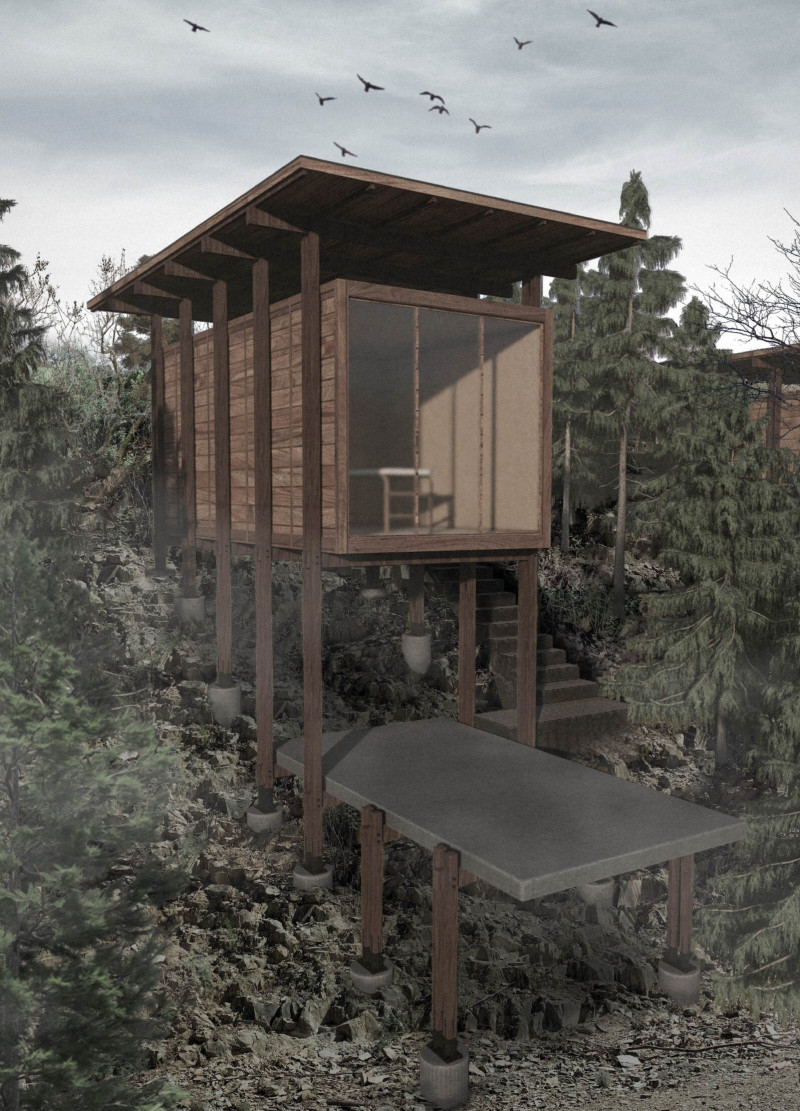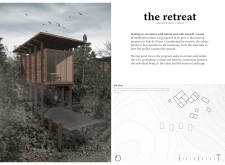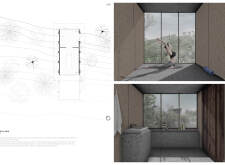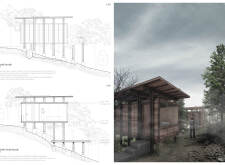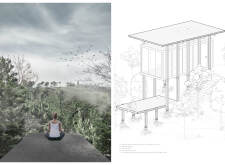5 key facts about this project
The Retreat in Vale de Moses is a series of meditation cabins that focus on giving individuals a chance to reconnect with nature. Located in a tranquil landscape, the design aims to create a space suitable for self-reflection and meditation. The approach emphasizes an intimate relationship with the surrounding environment, showcasing a commitment to ecological values.
Site Integration
The cabins are placed on an empty stone terrace, allowing for flexibility in how they are arranged around the site. This arrangement respects the existing landscape and encourages users to engage with their surroundings. The layout enhances feelings of solitude while promoting a deep connection to nature.
Cabin Design
There are two types of cabins known as TR1 and TR2. They differ mainly in the design of their terraces. Each type promotes a dynamic interaction with the landscape. The decision to have no side windows focuses attention on the wide views, reinforcing a sense of privacy and immersion in the natural world.
Sustainability Features
TR1 includes a south facade that features a gray water treatment system. This system manages wastewater effectively. It channels water to a storage area, then releases it through an irrigation valve box into mulch, which absorbs organic matter. This design choice reflects a thoughtful approach to minimizing environmental impact.
Interior Composition
Inside, wood is used for finishes while rubber serves as a waterproof and sound-absorbing material. These choices contribute to comfort and function within the cabins. The design emphasizes simplicity, ensuring that each space feels welcoming.
The shape and layout of the cabins, along with their terraces, create cozy areas that encourage users to engage fully with the peaceful environment, reinforcing the connection between the buildings and the landscape around them.


